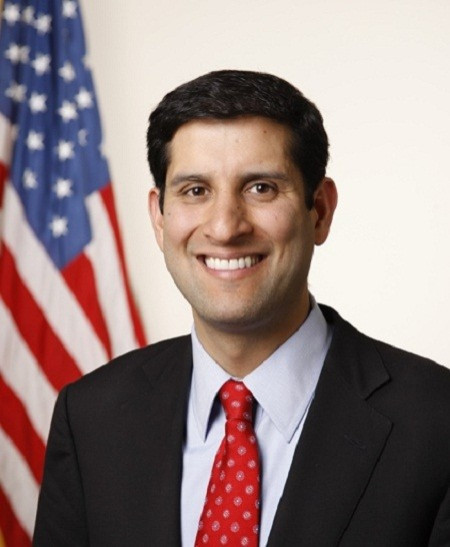Obama's First Federal CIO Vivek Kundra Quits; Fall Out of CIA, Senate Hacks?

Vivek Kundra, the nation's first federal Chief Information Officer (CIO), will quit the White House in August for a fellowship at Harvard University, days after the ignominous cyber attacks on spy agency CIA's website and Senate's public domain.
The Federal Chief Information Officer directs the policy and strategic planning of federal information technology investments and is responsible for oversight of federal technology spending.
Kundra's departure comes as the government is planning to cough up about $80 billion this year on technology, that includes upgrading thousands of federal data programs and worker e-mails.
The stepping down of Kundra after only 2.5 years in the role surprised many as Gartner says the average CIO tenure, in the public and private sectors, is four years.
It is not sure whether his exit is related to the recent hacking attempts on CIA and Senate websites by LulzSec.
In addition, Kundra just released a 25-point plan that is yet to materialize. Key components of the plan included the consolidation of more than 2,100 data centers to 800 by 2015.
When Obama appointed Kundra on March 5, 2009, his responsibilities included reforming how the Federal government manages information technology. One of Kundra's first projects was the launch of Data.gov, a site for providing access to raw government data.
When he began at the White House, he brought with him the promise of good ideas and a hard-charging style focused on getting things done, necessary qualities to tackle the difficult issues facing Federal IT - an aging infrastructure with rising operating costs, too many major projects failing to deliver, and increasing vulnerability to outside threats. Two and a half years after joining the Administration, Vivek has delivered on that promise, a White House statement said.
According to the statement, Kundra has cracked down on wasteful IT spending, saved $3 billion in taxpayer dollars, moved the government to the cloud, strengthened the cybersecurity posture of the nation while making it more open, transparent, and participatory.
Kundra's work has been replicated across the world from 16 countries that have deployed the data.gov model to tap into the ingenuity of their people to multiple countries that have deployed the IT dashboard to save money.
Kundra's efforts to use cloud-based Web applications in the District government have also been considered innovative within government. Following the DC example driven by Kundra, the city of Los Angeles is now taking steps to adopt the cloud computing model for its IT needs.
A DC spokeswoman said that the District of Columbia paid $479,560 for the Enterprise Google Apps license, which is $3.5 million less than what it had planned to spend on an alternative plan. Since its deployment in July 2008 Google Apps is available to 38,000 DC city employees, 4,000 of whom are actively using it.
As of August 20, 2009, DC has not yet made a decision to replace Microsoft Exchange with Gmail, having a policy to put into Google Apps only information that could be transmitted via e-mail and not placing sensitive data into Google Apps.
Kundra also moved the city's Geographic information systems department to a middle school.
In May 2011, Kundra was selected by EMC Corp. for their Data Hero Visionary Award for his pioneering work under the Obama Administration to reform how the Federal government manages and uses information technology.
Kundra has led the nation to seek innovative solutions to lower the cost of government operations, while exploring ways to fundamentally change the way the public sector and the public interact, EMC stated.
In March 2011, Kundra was selected by the World Economic Forum as a Young Global Leader for his professional accomplishments, commitment to society and potential to contribute to shaping the future of the world.
Kundra was also awarded the 2010 National Cyber Security Leadership Award by the SANS Institute for uncovering more than $300 million each year in wasted federal spending on ineffective certification and accreditation reporting and demonstrating an alternative approach called continuous monitoring that provides more effective security for federal systems at lower costs.
Kundra will join Harvard in mid-August to serve as a joint fellow at the Kennedy School and the Berkman Center for Internet and Society.
© Copyright IBTimes 2024. All rights reserved.





















